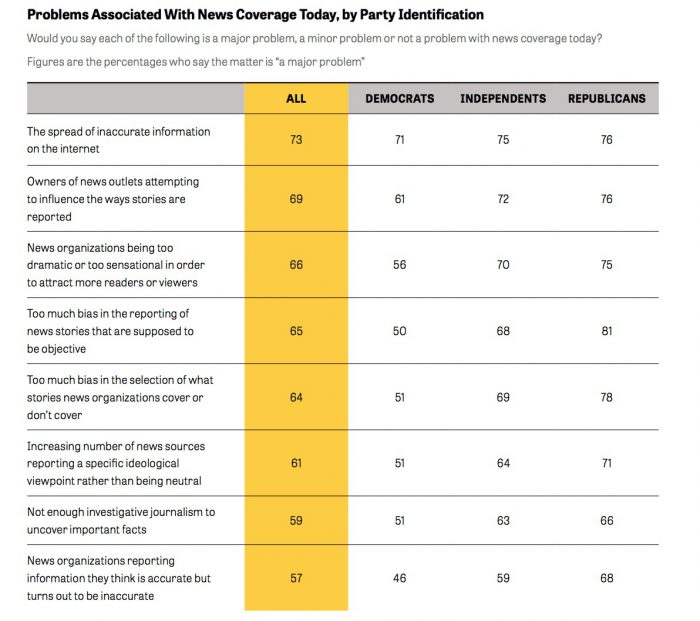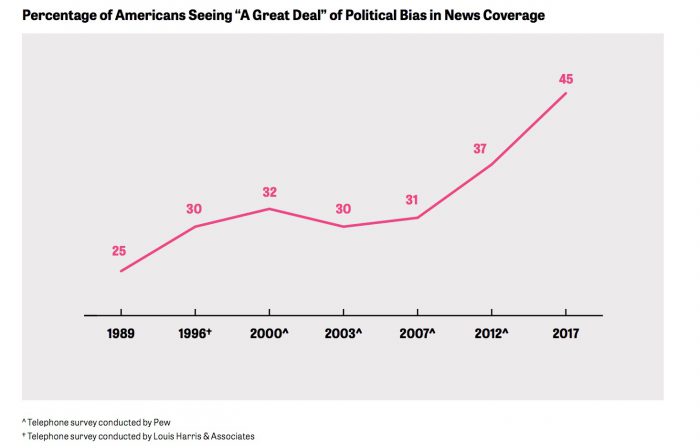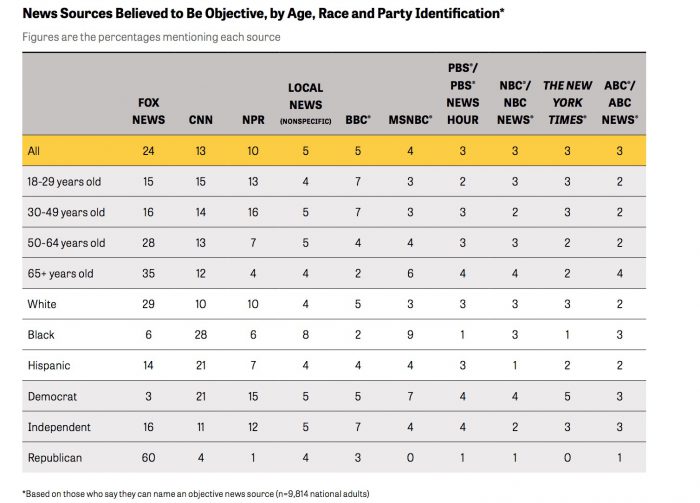
Another survey, another set of a sobering findings about how little Americans trust the current news ecosystem to keep them properly informed.
According to “American Views: Trust, Media and Democracy,” a new report from Gallup and the Knight Foundation, while Americans have access to more news sources than ever, they say that expansion has made it harder, not easier, to stay informed. And while people continue to give low marks to traditional news media sources when it comes to objectivity and trust, they’re also souring on the big tech platforms too.
Here are a few notable findings:
— Americans think the media has an important job, but don’t think that current institutions are doing it well. While the vast majority (84 percent) of Americans say that the media has an important role to pay in democracy, just 33 percent have a “very favorable” or “somewhat favorable” opinion of the news media.
Americans with favorable views towards the news media were also more likely to agree with the idea that more information makes it easier to stay informed, as opposed to harder. Still, 58 percent of Americans said that the proliferation of news sources makes it harder to stay informed. Just half say that there are enough news sources to help them cut through bias, down from 66 percent a generation ago.
— Unsurprisingly, political polarization is behind a lot of the divergence in Americans views on news media. While 54 percent of Democrats hold a favorable view of the news media, only 15 percent of Republicans do. Compared to Democrats, Republicans were also significantly more likely to identify reporting bias, sensationalism, and ideology as major problem with news media today.

— Americans on the whole see greater bias in the news than they did in the past. Forty-five percent agreed that there is “a great deal” of political bias in news coverage, which is a significant increase from 1989, where only 25 percent said the same. In a similar vein, less than half of Americans said they could name an objective news source.

While there was no strong partisan divide on this question, of the Republicans who could name an objective source, 60 percent named Fox News. (Democrats were much less uniform, with CNN and NPR leading the way.)

— Americans have an overall negative view of the role that Facebook and Twitter have had on the news environment. Just 42 percent said that the social media platforms have had a positive impact on the news media environment over the past 10 years. Americans are particularly concerned about the platform’s filter bubble problem: 57 percent of Americans said that algorithmic story selection represents “a major problem” for U.S. democracy.
Americans are, however, very much split on what to do about the problem: 49 percent say that there should be rules or regulations that govern the methods platforms use to provide users with news content, while 47 percent say there should not.
You can find the full report here.